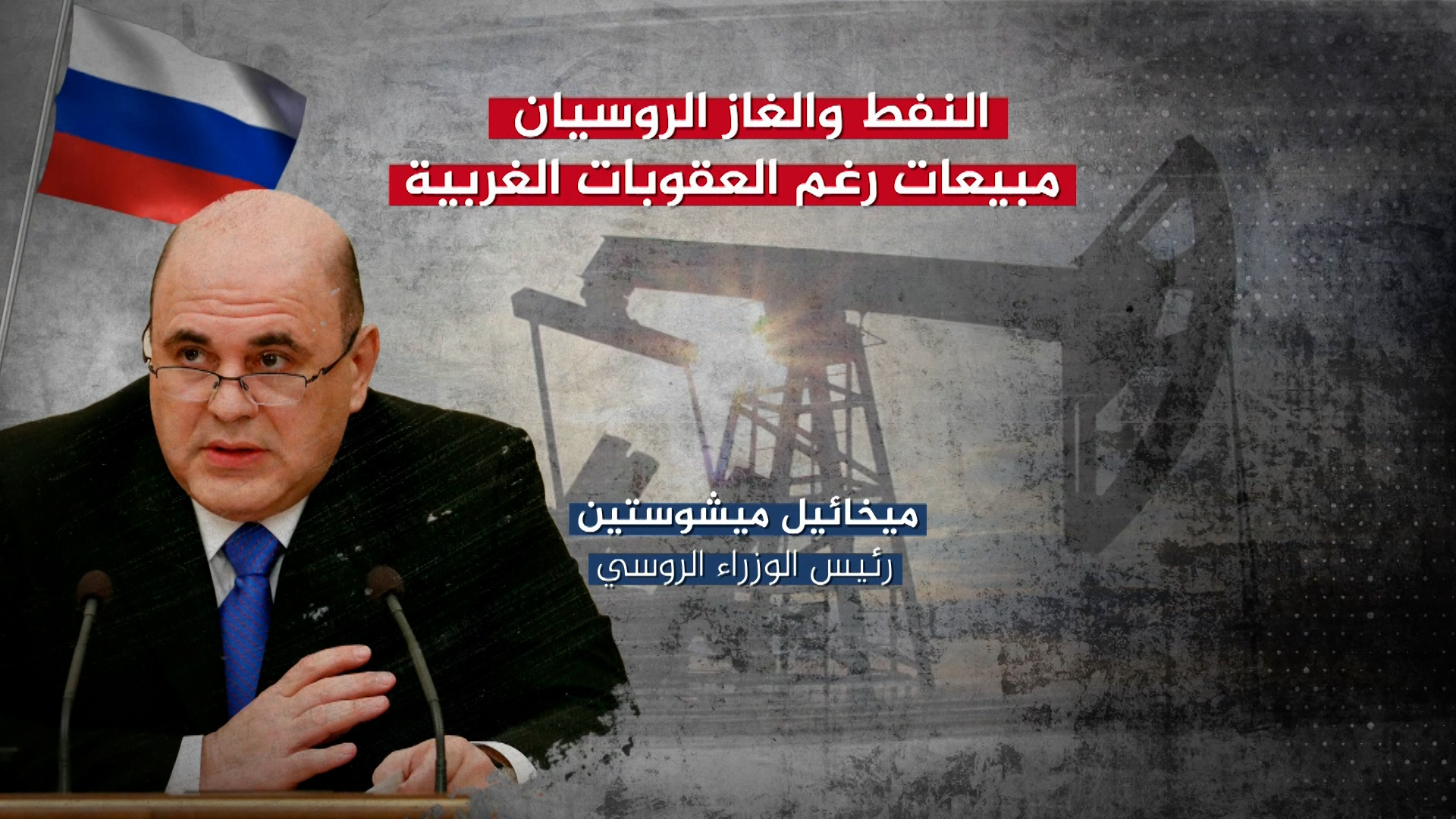The Speaker of the Russian House of Representatives expected - on Friday - that the West's plans to impose a ceiling on the price of Russia's exports of oil and gas will fail, and that prices will rise much more than what Western countries are trying to put.
This comes at a time when the United States said it will set a ceiling for Russian oil prices by the fifth of next December.
"What G7 officials call a 'ceiling' for the price will turn into a price bottom," wrote Vyacheslav Volodin, Speaker of the House of Representatives (Duma) - via his channel on Telegram - adding that the global market is not limited to 7 countries and that "the marginal ceiling announced by the West will become the minimum ".
He added that the concerned countries have realized their dependence on Russian energy, and that attempts to find alternatives to oil and gas imports from the country have failed and they will no longer be able to buy fuel from Russia "at a cheap price."
Russian Prime Minister Mikhail Mishustin also said that Russia's budget revenues from gas and oil had nearly halved despite sanctions and attempts to curb energy exports.
He added - in a speech to a forum in Moscow - that the Russian economy has adapted to the sanctions, and that they will emerge from the current situation "stronger and more prepared."
Russian oil price cap
And the G7 countries announced plans last week to impose a maximum price on Russian oil exports, in a move that may also undermine Russia's ability to provide oil tankers and guarantee insurance from outside the group's countries.
Wali Ademo, Deputy Secretary of the US Treasury, said that the United States will set a ceiling for Russian oil prices by the fifth of next December, noting that some rules for determining the ceiling of Russian oil prices will be issued in the next few days.
Ademo added - in an interview with "Yahoo News" - that a number of non-Group of Seven countries agreed to join in setting the ceiling for the price of Russian oil.
He said that India is interested in the ongoing talks, and that China will take into account the Russian oil price cap, he said.
For his part, Hungarian Foreign Minister Peter Sigarto warned against setting prices for Russian gas, saying that setting them collides with European and Hungarian interests.
He said - according to what was quoted by Reuters news agency - that adjusting the price of Russian exports of fuel will result in a complete cut off of supplies from the European continent.
Russian threat
For its part, Russia - which supplied Europe with a third of its gas supplies before the Ukraine war - threatened to stop its gas supplies to countries that set a price ceiling.
Last Wednesday, Russian President Vladimir Putin threatened to cut off energy supplies if price limits were imposed on Russia's oil and gas exports, warning the West that it would "freeze" like a wolf's tail in a famous Russian fairy tale.
European energy bills
On Friday, European Union energy ministers met to try to reach an agreement on ways to protect citizens from soaring energy prices and prevent the collapse of energy facilities, amid Russia's gradual halt to gas supplies to Europe.
EU diplomats say member states broadly support proposals to protect electricity suppliers from collapsing due to a liquidity crunch, but that they are divided over plans to cap Russian gas prices.
The ministerial talks - today, Friday - aim to limit the options to those that enjoy broad support before submitting official proposals, and not reaching a final decision.
In this context, British Prime Minister Liz Terrace announced a freeze on energy prices in the country, and a cap on energy bills for one family at 2500 pounds for a period of two years, and added that she was taking measures to help people with low incomes and would support charities, companies and public sector institutions with energy costs for this winter. .
She said - during a session in the British House of Commons - that her government will provide a new guarantee to allay concerns about energy bills, and will adopt an approach with companies based on specific investments to ensure energy security in the country.
Energy bills in European Union countries have risen after Russia's war on Ukraine, and EU governments are scrambling to limit the price shock. The European Commission has proposed providing emergency liquidity to energy companies facing mounting demands for guarantees, a move diplomats said was widely supported by EU governments.

